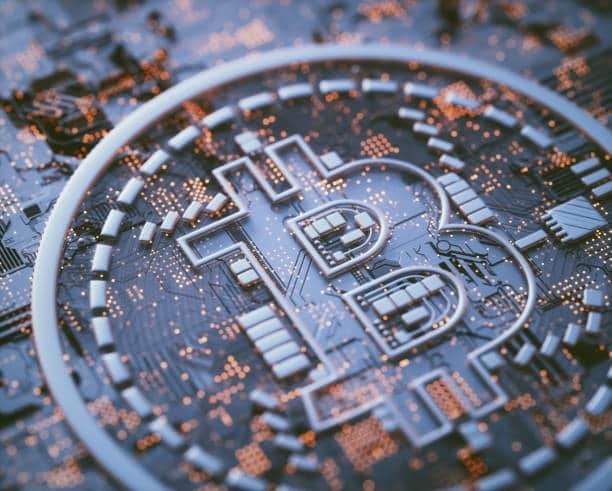
Imagine a world where the concept of money is not tied to any physical form, where the value of your wealth is not dictated by the whims of central banks or the economic policies of governments. This is the world of bitcoin, a decentralized digital currency that has been challenging the traditional financial system since its inception in 2009. But can Bitcoin truly replace fiat currency in the future? Let’s dive into the fascinating world of cryptocurrencies and explore the possibilities.
Bitcoin, as a form of digital gold, has captured the imagination of investors and tech enthusiasts alike. Its decentralized nature means that no single entity controls the supply, making it immune to the inflationary policies that can devalue fiat currencies. Bitcoin’s supply is capped at 21 million coins, a feature that has attracted many who see it as a hedge against inflation. In contrast, fiat currencies can be printed at will by central banks, leading to potential devaluation over time.
The volatility of Bitcoin has been a point of contention for those who question its viability as a replacement for fiat currency. While it’s true that Bitcoin’s value has experienced wild swings, this is partly due to its relative youth and the speculative nature of the market. As Bitcoin matures and becomes more widely accepted, its price stability is expected to improve. In fact, some argue that Bitcoin’s volatility is a feature, not a bug, as it allows for rapid price discovery and can act as a warning system for economic instability.
Bitcoin’s role as a global currency is another aspect that sets it apart from fiat currencies. Unlike traditional currencies, which are often restricted by national borders and exchange controls, Bitcoin can be sent and received by anyone, anywhere in the world. This borderless nature of Bitcoin has the potential to revolutionize international trade and remittances, allowing for faster and cheaper transactions. For people living in countries with unstable currencies or restrictive financial systems, Bitcoin offers a lifeline to the global economy.
The security of Bitcoin is a cornerstone of its appeal. Transactions are secured through a process called blockchain, which is a decentralized ledger of all transactions. This makes it extremely difficult for anyone to alter the record of transactions, providing a level of security that is unmatched by traditional financial systems. While no system is completely immune to hacking, the robustness of Bitcoin’s blockchain has proven to be resilient against most attacks.
Bitcoin’s environmental impact is a hotly debated topic. The energy consumption required to mine new coins and validate transactions has raised concerns about its sustainability. However, it’s important to note that Bitcoin’s energy usage is not static and can be optimized through technological advancements. Moreover, the environmental impact of fiat currency production and distribution, which includes the mining of physical metals and the printing of paper money, is often overlooked. As Bitcoin becomes more efficient, it could potentially offer a greener alternative to traditional currencies.
The adoption of Bitcoin by businesses and individuals is a key factor in its potential to replace fiat currency. As more merchants accept Bitcoin as a form of payment, its utility increases, making it more attractive to users. This network effect can drive further adoption, creating a positive feedback loop. Additionally, the rise of Bitcoin ATMs and payment processors is making it easier for people to use Bitcoin in their daily lives.
Regulatory challenges are one of the biggest hurdles for Bitcoin to overcome in its quest to replace fiat currency. Governments around the world are grappling with how to regulate cryptocurrencies, with some imposing strict controls and others embracing the technology. The future of Bitcoin will largely depend on how these regulations evolve and whether they can strike a balance between protecting consumers and fostering innovation.
The technological advancements that Bitcoin has spurred cannot be ignored. Blockchain technology, the backbone of Bitcoin, has applications far beyond currency. It has the potential to revolutionize industries from supply chain management to real estate, creating a more transparent and efficient global economy. As these technologies mature, they could further bolster Bitcoin’s position as a viable alternative to fiat currency.
In conclusion, while Bitcoin faces significant challenges on its path to potentially replacing fiat currency, its unique features and the technological innovations it has inspired make it a formidable contender. The future of money is uncertain, but one thing is clear: Bitcoin has changed the conversation about what money can be and will continue to shape the financial landscape for years to come.
